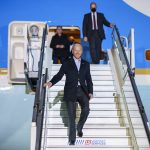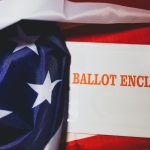Wei Chen would prefer that people who visit Chinatown in Philadelphia don't see the big Philadelphia 76ers arena a block away when they look through the community's gateway arch.
The Philadelphia 76ers' revelation Thursday of a $1.3 billion arena plan only a block from Chinatown's entryway arch shocked Chen and other Chinatown organizers and residents. They said the group and the property owner had not asked for input from the neighborhood before making the announcement.
A representative for the arena's developer, 76 Devcorp, said in an email that the project is still in its early phases, with "anything changing" still years away, and that the business hopes to collaborate with the community to influence the project and make sure it's "done right."
Throughout Chinatown, many residents have heard assurances that prove illusive. Residents now have a wealth of options to select from after decades of growth, including the Pennsylvania Convention Center, which displaced 200 people, Interstate 676, commonly known as the Vine Street Expressway, which threatened to cut off parts of the city, and proposals for a jail, a casino, and another sports facility, all of which were rejected by the community.
Fewer than fifty Chinatowns exist in the United States, with some larger and more active than others. It's no surprise that many people settled in what were once known as "red light districts" in major cities. Many Chinatowns were subject to gentrification or development as cities expanded and altered around them.
Philadelphia's Chinatown eateries suffered a loss of business during the epidemic, and the city is just now recovering from that. Many elderly residents stayed put after hate crimes targeting people of Asian heritage quadrupled in 2019.
South Philadelphia, a few miles from downtown, is where the 76ers and most of Philadelphia's other professional sports teams currently play.
The construction of a new arena has sparked concerns among Chinatown's residents and business owners that it will make it more difficult to hold traditional celebrations and festivals, as well as destroy affordable street parking. They are also worried that people who depend on the community would be forced to leave because of the rising housing prices.
Debbie Wei helped establish Asian Americans United in the 1980s in Philadelphia as a means for persons of Asian descent to organize politically and socially. She was also a leader in the 2000 demonstrations against the construction of a baseball stadium for the Philadelphia Phillies near Chinatown.
Both the Washington Capitals ice hockey team and the Washington Wizards NBA team moved to the Chinatown area of Washington, DC in 1997. Revitalization occurred, say proponents of economic growth, because of an increase in foot traffic and the demand for prime real estate, while residents of Chinatown say they were driven out by rising rents and the proliferation of brand eateries.
It's just a cosmetic illusion, Wei said, because CVS and Starbucks signage also have Chinese translations next to them. Chen worries that the changes that have occurred in Chinatown, Washington, D.C., will also occur in Philadelphia.
As the census shows, Chinese-speaking households in Philadelphia are rapidly expanding. With the current 5 percent milestone being reached, Chinese languages are now recognized as official vote languages in the community. Newcomers from Asia and other parts of the world helped reverse the city's decades-long population decline.
First Asian American woman elected to Philadelphia City Council, Helen Gym wore two T-shirts from earlier fights against damaging developments in Chinatown. In the first, the words "No stadium in Chinatown" are written boldly, while in the second, the word stadium is crossed out and replaced with the word "casino," referring to an earlier proposal from 2008 that intended to install a casino close to the proposed arena.
According to Gym, the area north of the freeway was turned into a public charter school, community center, additions of the Chinese Christian Church, and the first Cambodian arts center after the stadium failed in 2000.
When Folk Arts Cultural Treasures Charter School first opened, Wei was the school's first principal. According to her, the building's owner rejected offers from condo developers.
The preceding is a summary of an article that originally appeared on The Daily Cable.




